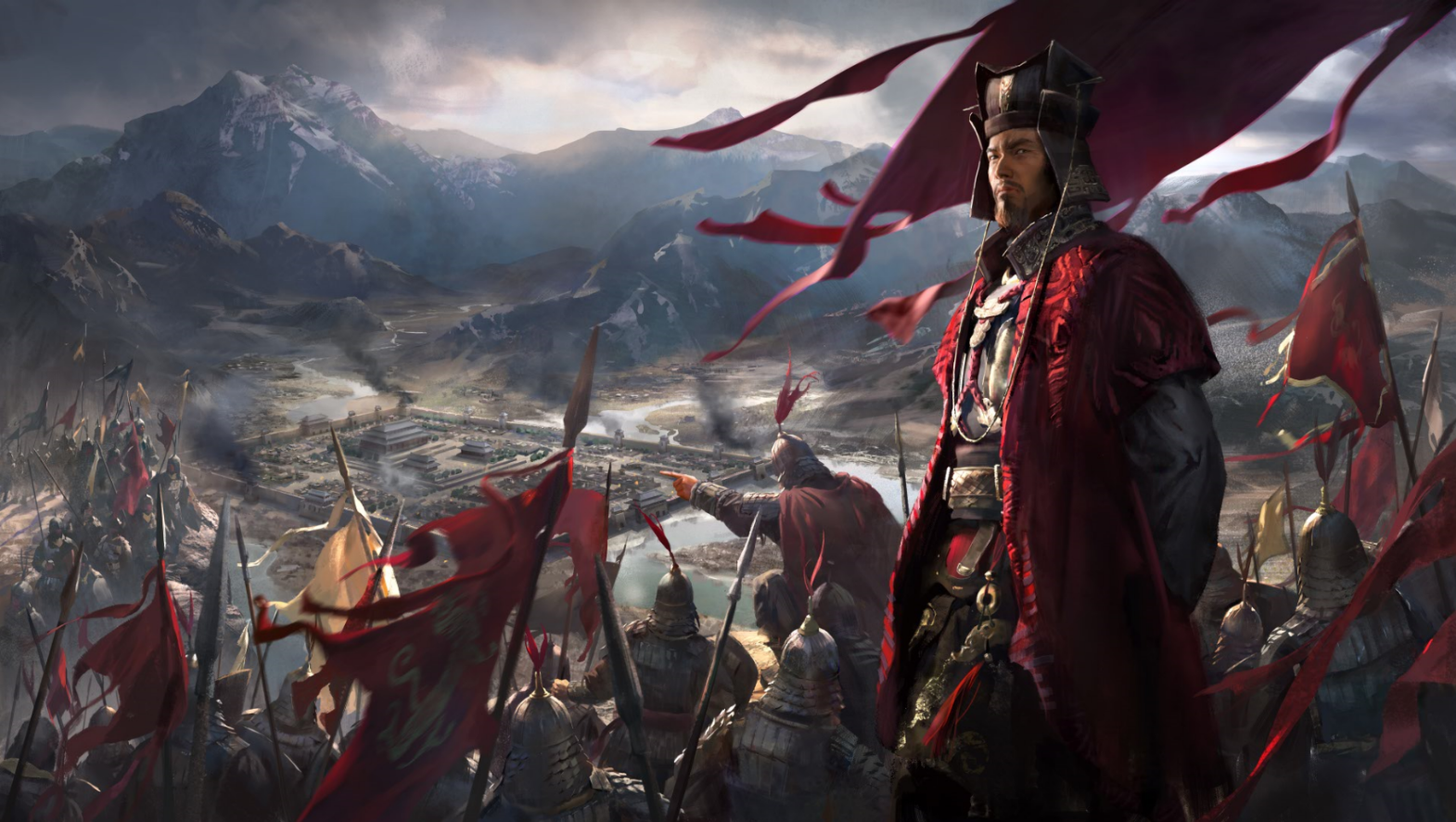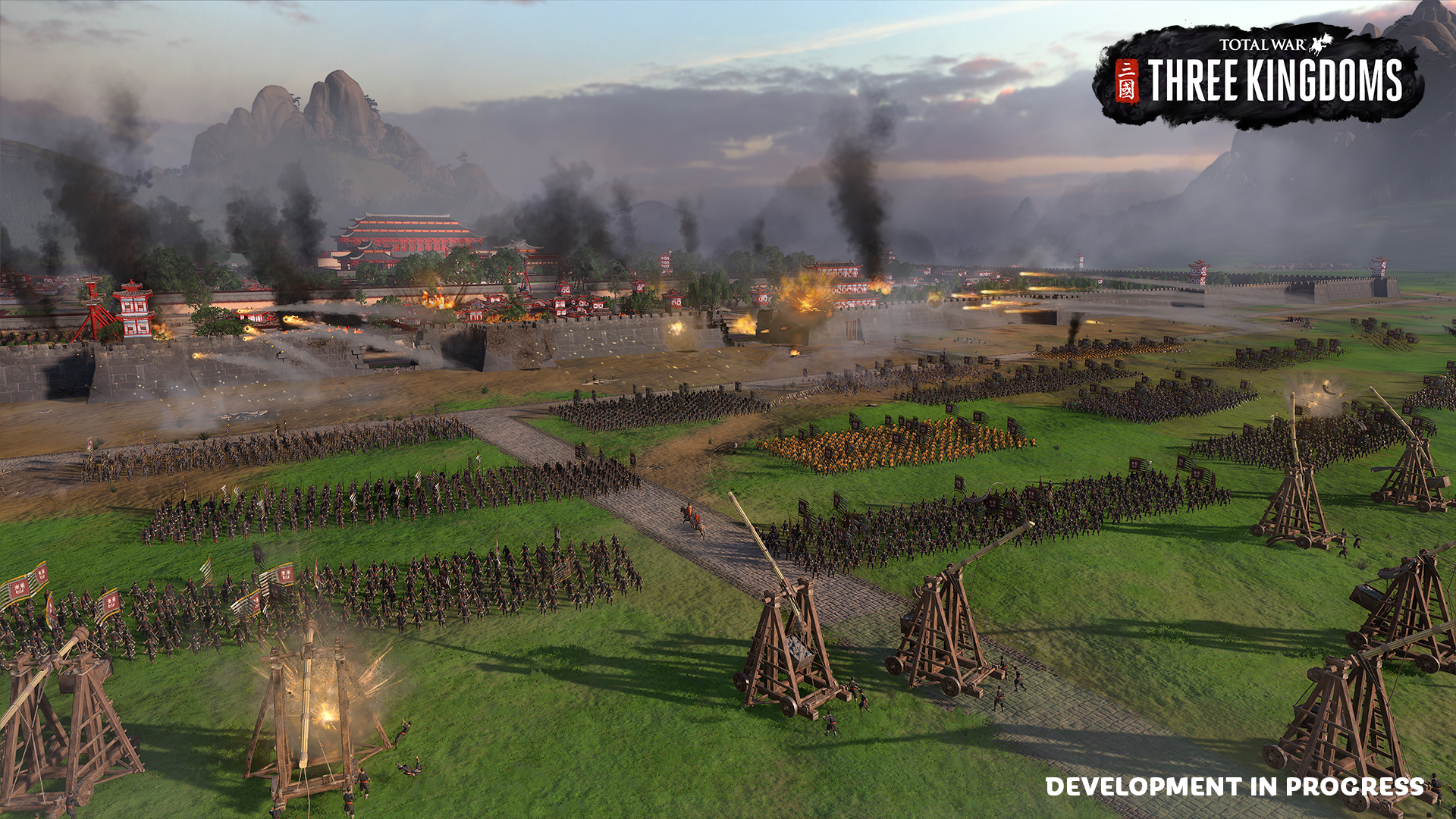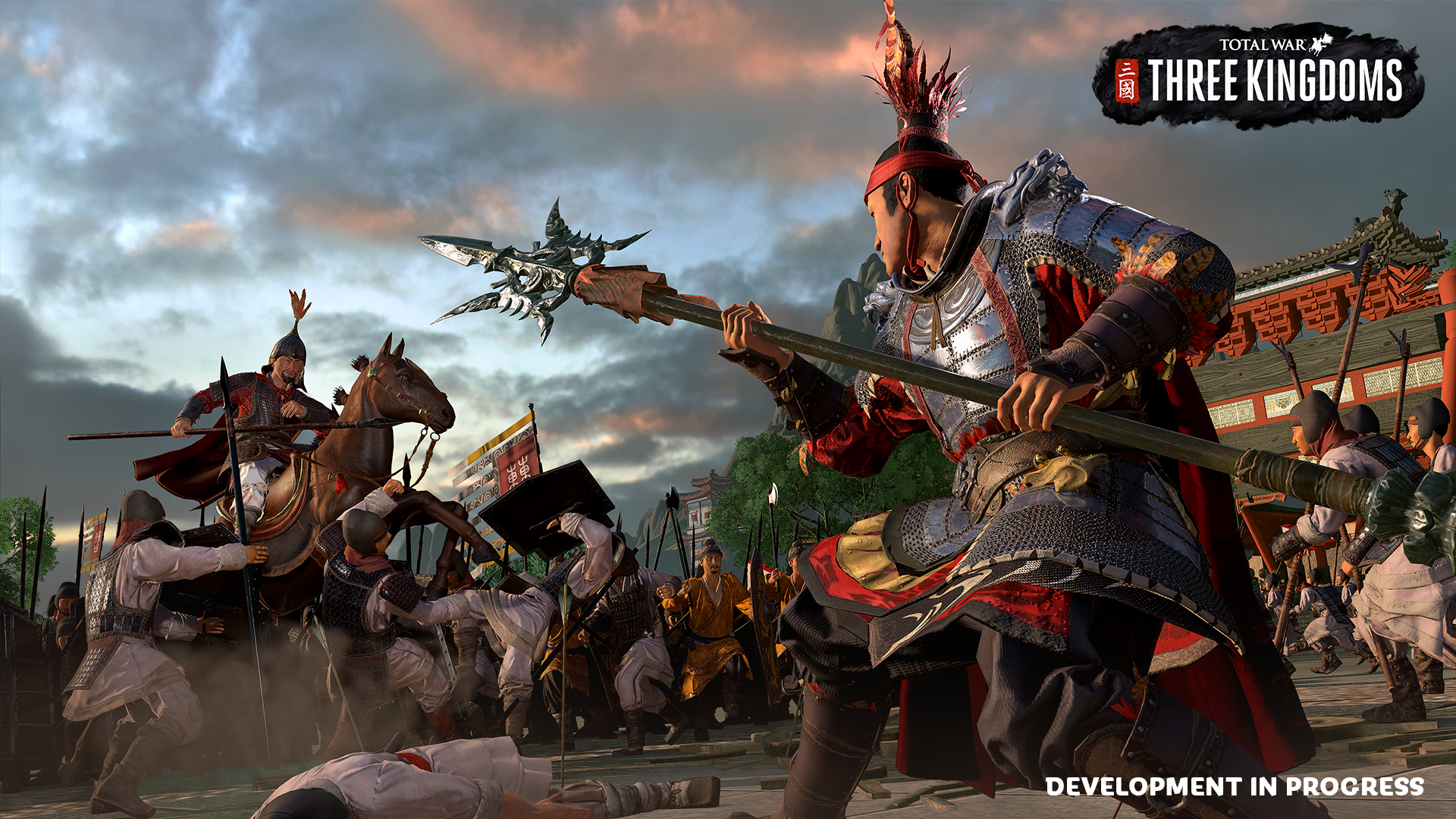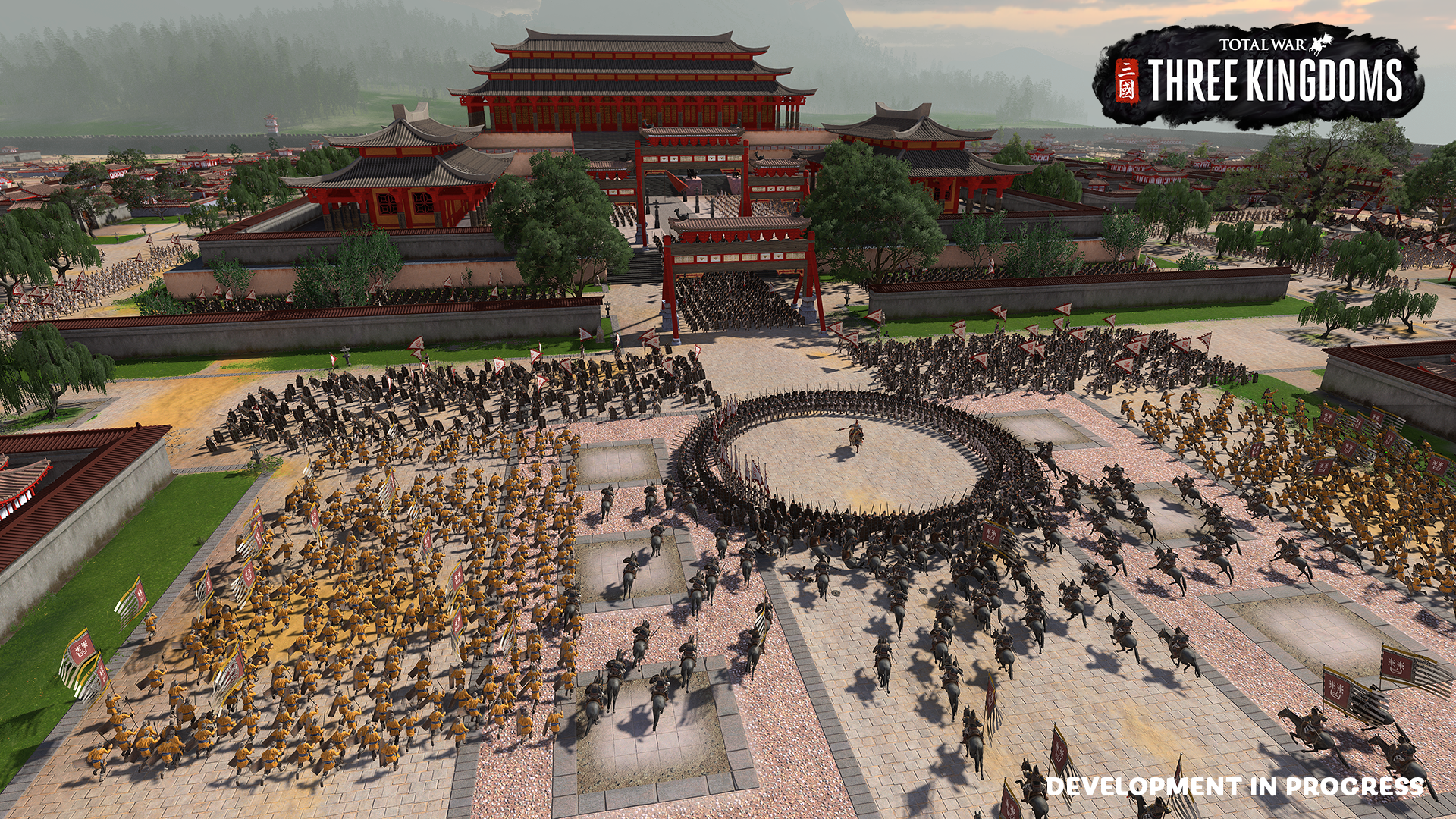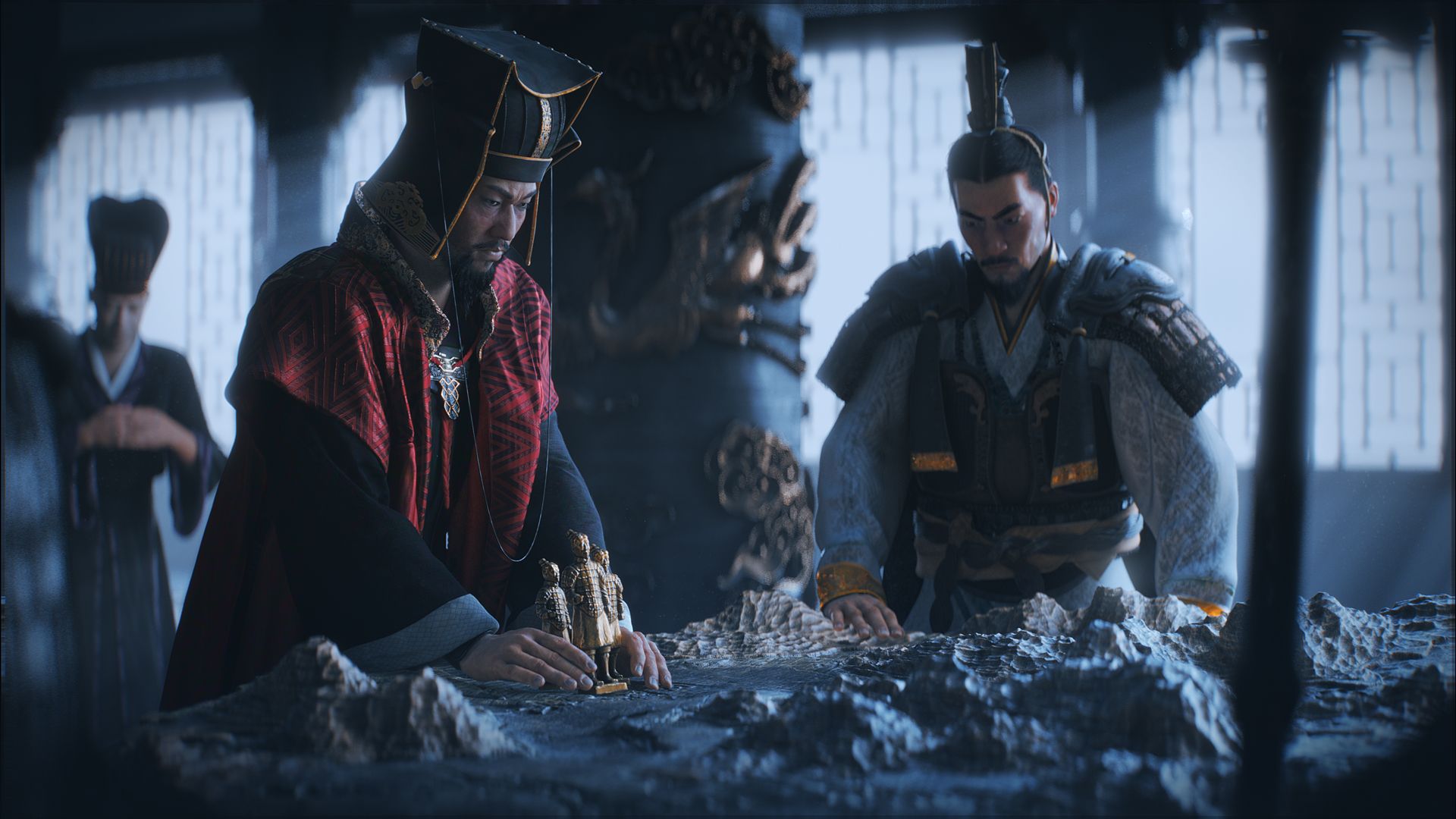I was very excited when SEGA and Creative Assembly announced Total War: Three Kingdoms earlier this year. Following some stagnation in the historical side of the series in recent years, Three Kingdoms is looking to freshen things up with a new, Chinese setting based on the Romance of the Three Kingdoms saga and a vastly improved engine.
This year at E3, I met up with Creative Assembly to check out an early build of the game featuring the battle of Xiapi. Afterward, I sat down with Art Director Pawel Wojs and Senior Designer Leif Walter to talk about the various improvements that Total War: Three Kingdoms brings to the long-running strategy game series.
Tomas: Diplomacy has been considered by many one of the weakest points of the Total War franchisefor a while. Can we expect any improvements to that system in Total War: Three Kingdoms?
Pawel Wojs: Unfortunately, we are not able to talk about details for diplomacy yet, but we will talk about that later. There's going to be some good, exciting stuff there, but for now, we are focusing on the main direction of this demo.
T: Is Creative Assembly working to improve the battle AI?
PW: Yes, of course. We are always trying to improve on these systems each time and try to have new gameplay features, and the AI needs to support those, otherwise, it's pointless. So yes, we are definitely working on improving that.
T: Piggybacking on that, the problem of undefended provinces was made even more extreme in Thrones of Britannia due to the fact that villages had no garrisons, turning the campaign AI's defense flimsy. Is this something you're going to address in Total War: Three Kingdoms?
Leif Walter: Yes. The benefit of having multiple projects in development at the same time is that we learn from each other's mistakes, improve, and become better. We definitely have a solution for that problem.
T: I find the new dueling system very interesting. What impact will winning or losing a duel have on the bigger picture of the battle and does it have a lasting effect on the surviving generals?
PW: Of course, if you slay an enemy general in battle you can imagine the morale boost that would give your men, so slaying your enemy in battle is a good way to boost your troops in battle and will have a detrimental effect on your opponents.
Another big thing is the focus on character relationships. Slaying someone in a duel might really create friction with other characters. If you slay someone's brother, that man will probably have a vendetta against you, start a rivalry with you, and will want to avenge his brother. This creates very interpersonal stories.
LW: There's also an obvious impact on you. If you lose your champion, you've lost a huge character that was pivotal to your fight. You have to be really careful with you duel and really think about if you want to do it.
PW: There's also the option to have other troops respect the duel, they won't interfere. You can choose to interfere, though it is a very dishonorable act with bad consequences in battle, but that might also be the only way to save your hero.
T: Of course, China is a gigantic country. Is this going to be the biggest map yet for the Total War series?
LW: It is one of the biggest maps in the series. I believe it might be the largest map in the entire series, it's definitely up there as it is a huge land mass.
PW: There is a huge variety of areas as well. We have arid desert, vibrant jungles, and tropicals areas, so there is definitely some interesting terrain. In the end, we look at the historical material we work with, and China is a very large and vibrant entity.
T: What changes are you making to Siege gameplay in Total War: Three Kingdoms?
PW: First of all, we have full settlements back, so it's not just storming against the wall. You can attack from any side you want or multiple sides at the same time. One big change is that it is not only about overcoming the walls, it's also about fighting within the settlements and find the best path through the layout.
LW: You've obviously got the barricades, you have the tiered approach, and internal guard towers designed to cause attrition to the attacker. You also have the battlefield-campaign connection. Every single building you build on the campaign map is inside the settlement during that battle. You have your military district, your agricultural district, etc., and those buildings getting destroyed will have a noticeable impact on your campaign.
PW: And the AI, like I said, supports this gameplay-wise be focusing on defensive depth with a layered defense.
T: In the trailer, the trebuchets destroy the walls in one strike. Is it going to take more than that in the game?
LW: It probably sustained some damage before that, and in the demo when we were destroying the wall, we had six trebuchets all firing at once. I think they pack a punch, but they are limited. You'll have to balance what you spend your trebuchet on. Yes, you could destroy one section of the wall, but you could potentially be better off saving them.
PW: We've already discussed siege escalation is back and more important than ever before, so it's really important to lay siege to the settlement and create these breaches in the wall to damage the enemy and make it easier to attack. And it's not just breaches because siege escalation also impacts damage. Sections of the wall between breaches will already be at 50% health, so you may have an easier time destroying them.
T: Will Total War: Three Kingdoms cover this whole era of Chinese history, or just a specific portion of it?
PW: We start in 190 AD, when the might Han dynasty is crumbling. All of these warlords are fighting and trying to forge their own destiny. It's called Three Kingdoms, so we cover the whole Three Kingdoms period.
T: What has the technological leap with Total War: Three Kingdoms allowed this game to do that previous entries could not?
LW: Well, we've improved core systems, like we've mentioned AI. Visually, we have a new depth of field system. Our shadows are substantially better and on par with the scale of Total War, whether you are up close and personal or zoomed out to see the entire map. Also, temporal anti-aliasing is a big improvement to the visuals.
PW: Also, the animations themselves have improved. We've focused on getting real experts of the fighting styles featured, so the animations are more flamboyant than before.
T: Is there anything else you would DualShockers' audience to know before they get their hands on Total War: Three Kingdoms?
PW: Some of the most important aspects of this game are the social networks and character relationships that are really represented here. Characters are not just part of a faction, they are part of a world and travel around. You might have a friend in your faction, but another in your opponents'. All of these relationships influence decisions during the campaign and story.
LW: They should also know that at its core, it's a Total War game, so it is historical. It is a historical game based on the records of the Three Kingdoms, which is what players expect from a Total War game. But on top of that, we have his detailed narrative wrapper. The Romance of the Three Kingdoms was a novel based on these records. With the records we have the faction information about movements, occupations, and things like that. With Romance we have the interpersonal relationships and how they play out.
With that, we have Romance of the Three Kingdoms events. As you are playing, you will be presented with events from the Romance, and it will be you choice to follow through if you know the story or ignore it and make your own history, your own Romance so to speak. There's some really interesting things you can do in this sandbox experience, but Total War: Three Kingdoms also has this kind of story on top of it.
Total War: Three Kingdoms is currently poised to release on PC sometime in early 2019.

